The 72mm engine piston ring is an essential element of the internal combustion engine, crucial for sealing the combustion chamber, regulating oil consumption, and facilitating the transfer of heat from the piston to the cylinder wall. Manufactured with meticulous precision to meet stringent specifications, these piston rings are tailored for engines with a 72mm cylinder bore, a size prevalent in diverse applications ranging from vehicles to industrial machinery.
Types and Characteristics of 72mm Engine Piston Rings
Among the 72mm engine piston rings, various types exist, each with distinct features aimed at augmenting engine efficiency. The primary compression ring, typically crafted from superior steel, is designed to endure the rigors of intense heat and pressure. The second ring complements the first in sealing and incorporates additional oil-scraping capabilities. Oil rings are constructed to be flexible, maintaining a slender oil layer and averting blow-by. Racing engines may employ slimmer, lighter rings to minimize friction and inertia, whereas heavy-duty engines necessitate sturdy rings capable of withstanding extensive wear.
Structure and Mechanics of 72mm Engine Piston Rings
The 72mm engine piston ring assembly is a testament to intricate engineering, featuring multiple layers and characteristics. The uppermost ring may be coated with molybdenum or chromium to bolster wear resistance. The intermediate ring could possess a tapered surface or a wiper configuration to aid in oil management. Typically, the oil ring consists of a three-part structure, with dual slender rails and an expander, providing the necessary flexibility and conformity to the cylinder wall. These elements synergistically operate to preserve engine compression and oil consumption at ideal levels, facilitating smooth engine operation.
Materials and Properties of 72mm Engine Piston Rings
Material selection for 72mm engine piston rings is pivotal. Steel rings are preferred for their tenacity and shape retention under taxing conditions. Cast iron is traditionally selected for its superior wear resistance and adaptability to the cylinder wall. Ductile iron presents an enhancement in strength compared to conventional cast iron. Aluminum rings are chosen in high-performance engines for their lightness, while stainless steel is utilized for its anti-corrosive properties, particularly in marine engines.
Business Usages and Applications of 72mm Engine Piston Rings
72mm engine piston rings are indispensable to engines within a broad range of sectors. In the automotive industry, they are found in cars, motorcycles, and trucks, where engine efficiency and durability are paramount. Aerospace applications include aircraft engines that demand utmost reliability. In agriculture, these rings are employed in machinery such as tractors and combines, which require resilience under diverse environmental conditions. The industrial sector relies on these rings in stationary engines that drive generators and pumps, where consistent operation is essential.
Functions and Tasks of 72mm Engine Piston Rings
The 72mm engine piston ring fulfills several critical roles. It ensures the combustion chamber is sealed to avert gas leakage and maintain engine pressure. It also acts as a shield to keep oil from the combustion chamber, thus preventing oil contamination of the combustion process. Moreover, it is responsible for conducting heat from the piston to the cylinder wall, a vital function for maintaining the engine at an optimal temperature and preventing overheating.
Features and Unique Selling Points of 72mm Engine Piston Rings
The 72mm engine piston rings feature high conformability, enabling them to maintain a seal through the engine's thermal cycles. Their longevity is bolstered by surface treatments that diminish wear. Certain rings undergo a gas nitriding process to harden the surface, while others may be coated with phosphate to enhance lubricity and stave off corrosion. These distinctive attributes render them a prime selection for engine builders and manufacturers in search of dependability and performance.
Benefits and Positive Outcomes of 72mm Engine Piston Rings
Integrating 72mm engine piston rings into an engine assembly yields a multitude of advantages. They secure a tight seal for optimal power output and efficiency, leading to improved fuel economy and reduced emissions. The decrease in oil consumption not only saves on costs but also benefits the environment by lessening the engine's carbon footprint. The durability of these rings translates to fewer replacements, reduced downtime, and lower maintenance expenses throughout the engine's service life.
How to Use and Maintain 72mm Engine Piston Rings
To maximize their utility, 72mm engine piston rings should be installed with exactitude, with ring end gaps spaced as per the manufacturer's guidelines. Routine maintenance should encompass inspections of the ring end gaps for signs of wear, timely replacement of the rings, and verification that the engine's lubrication system is in proper working order to forestall premature wear of the rings.
How to Choose and Install the Right 72mm Engine Piston Ring
Selecting the appropriate 72mm engine piston ring necessitates an understanding of the engine's operational context and the demands it faces. High-performance engines, for instance, may need rings with specialized coatings to cope with elevated temperatures. Installation demands careful handling to avoid damaging the rings, and the employment of a piston ring compressor is advised to guarantee that the rings are inserted evenly and securely into the piston grooves.
What are the maintenance requirements for 72mm engine piston rings?
Maintaining 72mm engine piston rings involves regular checks for wear and tear, ensuring the engine oil is uncontaminated and at the proper level, and adhering to the engine manufacturer's recommended service intervals. Proper upkeep is essential for the piston rings' longevity and the engine's peak performance.
Can 72mm engine piston rings be used in performance engines?
Indeed, 72mm engine piston rings are suitable for use in performance engines. Such engines necessitate piston rings that can withstand elevated pressures and temperatures, and there are rings available that are specifically engineered with materials and coatings to meet these rigorous conditions.
Are there different types of 72mm engine piston rings for various engine configurations?
Certainly, there are specialized 72mm engine piston rings designed for different engine configurations and cylinder counts, such as 4 or 6 cylinders. The design and material composition are varied to cater to the unique requirements of each engine, whether it be for a standard vehicle, a heavy-duty truck, or specialized equipment.
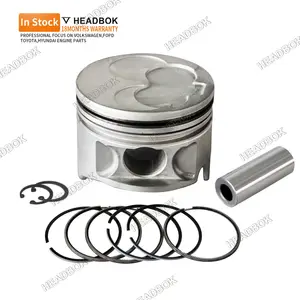




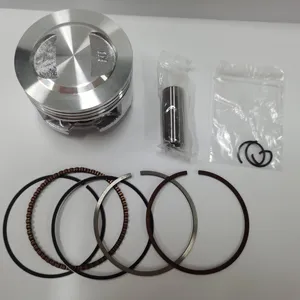





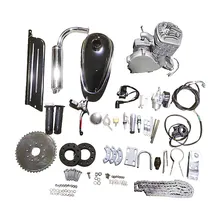

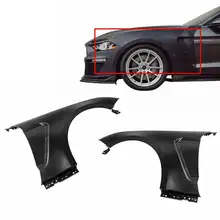
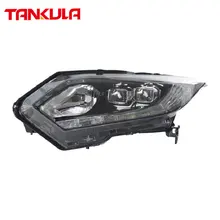




























 浙公网安备 33010002000092号
浙公网安备 33010002000092号 浙B2-20120091-4
浙B2-20120091-4